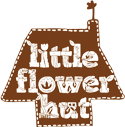Baby Hamper Singapore
Baby Shower Traditions around Asia
Baby shower traditions around the countries in Asia most probably share the same key components. The party is intended to celebrate the new baby and to shower the family, especially the baby and the mother, with useful and beneficial baby gifts. Family and friends, as well as their close relatives, usually come along with or without invitation to share the excitement and joy. Traditions and culture in Asia may appear the same, but there are several things that can be different and unique. If you are planning to attend a baby shower party in one of the Asian countries or regions, learn about the traditions here:
- China
Baby showers in China were influenced by different religions, customs, and cultures. However, they also have common things when it comes to celebrating a new baby. For the Chinese people, a new baby is a blessing, especially if the baby is a boy. The parents of the new baby give red dyed boiled eggs to their friends, relatives, and neighbors to signify luck and happiness for the baby.
Also in China, the newborn baby wears the traditional “a hundred families clothes” while parents wear red clothes to invite good fortune. Grandparents also give the ring, bracelet, or necklace with lock to wish longevity or to lock their life with health, prosperity, and fortune. Traditional Man Yue or baby’s full moon celebration was originally intended to celebrate the milestone of the baby after surviving the first month.
- Japan
Although baby showers seem to be rare and uncommon, there are places in Japan where people throw baby showers to welcome the baby. Japanese people have their superstitious beliefs when it comes to celebrating the new baby. Their friends do not give gifts until the baby is born, and they considered it best to wait until the mother recovered from giving birth before they come and pay them a visit. Traditionally, they come to offer money and gifts.
The baby is taken to the temple to be blessed by the priest on the 30th day of the baby boy and 32nd day of the baby girl. When they come home, people celebrate with the family.
- Tibet
The arrival of the baby is celebrated in Tibet, instead of a baby shower. This tradition is commonly called “pang-sai” or cleansing of the baby. Within the first week of the baby after birth, guests, friends, and relatives come to offer gifts to the new baby and to parents Gifts that people usually bring includes foods and clothes, as well as offering of prayers.
- Korea
Baby showers are not common in Korea. Instead, they traditionally celebrate the baby’s first 100 days. They call it “baek-il” and it is celebrated in big, elegant party. During the party, friends and relatives, as well as neighbors, come to give their gifts to the baby, mostly gifts with traditional and religious implications. Aside from money in red packets or Ang Paos, people also give jewelry, silver, gold, and jade for wishes of good fortune and luck. Friends also give tiger baby shoes for the baby’s protection against evil spirit.
However, Koreans also traditionally observe and practice “taegyo” or pre-natal care. This was their way of showering the pregnant mother with love and care before giving birth. The pregnant mom is usually taught and encouraged to eat healthy foods, listen to relaxing and calming music, and speak kind words to the unborn child.
- Indonesia
One of the most significant traditions in Indonesia is the 7th month pregnancy baby shower, especially for the first-time mothers. It was known as Mitoni. The tradition was brought by the earliest immigrants from China to Indonesia. More focused on the mother, ceremonies and rituals involved in Mitoni include the showering of water to the pregnant mother. The water was collected from seven wells and springs. The said event was intended to bless the baby and the mother with safe delivery. The gathering was a way to bring family and friends together to celebrate.
- Singapore
Singaporeans celebrate the birth of a new baby on the 100th day after childbirth. Parents wait for the baby to grow until its first 100 days before they finally introduce the little one to friends and relatives. More than just a celebration, it is a ritual that has been practiced in Singapore nowadays as influenced by the Chinese people. People gather together to eat and drink specialty dishes and traditional foods. They also give their blessings and gifts of cash and items to the baby.
Part of the said rituals include the lighting of incense as an offering to their ancestors, the cleansing bath of the mother as a sign of recovery, and the bathing of the baby in water and hard-boiled eggs. Boiled eggs were added to the water to symbolize birth, life, and renewal. They also add coins to the water, which is a symbol of prosperity, and flowers for good fortune and a b righter future. After bathing the baby and the mother, the baby gets the first haircut and wears new red baby clothes and jewelry to ward off the evil spirit.
Baby showers are a traditional baby-related event that is observed and practice in different parts of Asia, and throughout the world. Although the customs and traditions of the celebration differ in some ways, there are things about the ceremonies and rituals that are the same. These baby shower traditions were carefully regarded as a way of protecting the baby from health issues and from negative, evil spirit.
